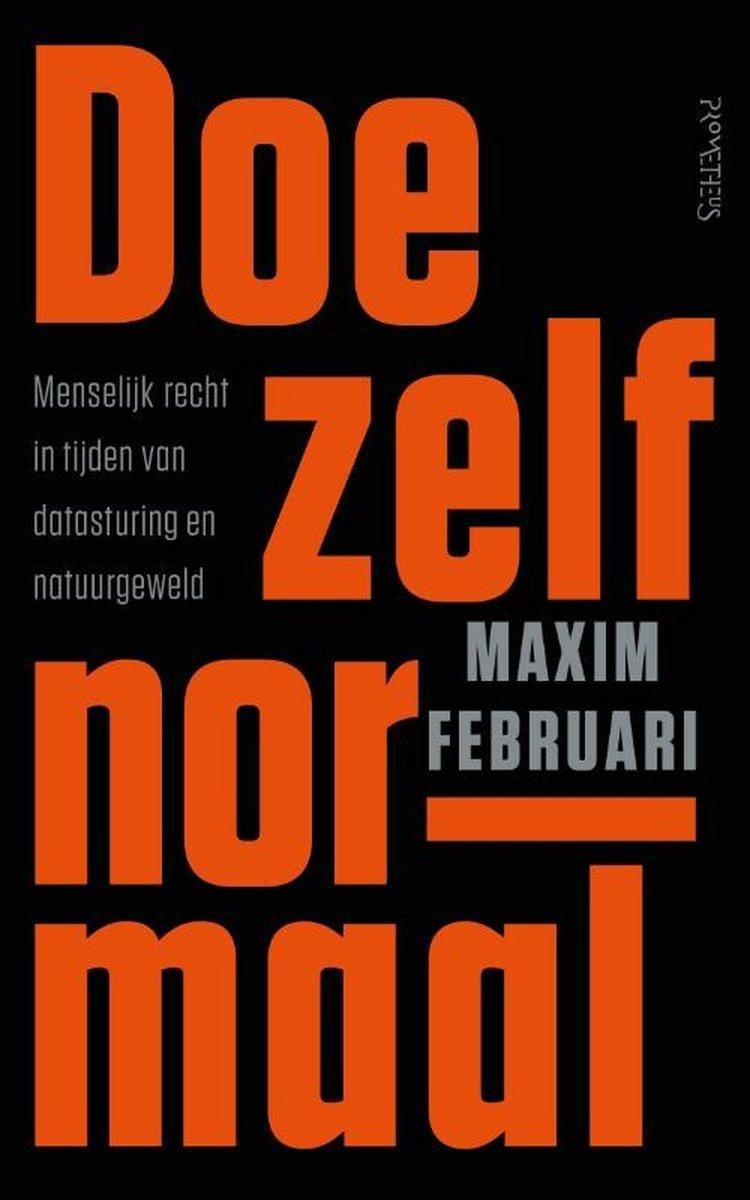Give us a break
Human justice in times of data-driven decision-making and natural disaster
In liberal democracies, human behaviour is regulated by the justice system. This way of establishing and maintaining norms is now being replaced with data-driven technologies in the rush to meet simultaneous crises. Written with erudition and wit, 'Give Us a Break', by judicial philosopher Maxim Februari, examines how this digitalization is rapidly transforming democracy, basic rights and the rule of law in practice.

According to Februari, humanity now finds itself sandwiched between two systems. On the one hand, the urgency of the climate crisis demands drastic government action which democracy seems ill-equipped to deliver. On the other hand, advancing data-driven technology promises to solve humanity’s problems, and increasingly is being entrusted with decision-making in all aspects of life. These machines, working in a vast and opaque network of communicating devices, are being given license to derive their own rules and norms. After all, they ‘know’ everything about us.
The question is whether, in our techno-enthusiasm, we are losing the ability to publicly contest these norms and determine our own behaviour. For Februari, a democratic society exists by virtue of public debate, and yet with the innovations of digital technology, the idea of political representation has come under pressure. The ability to communicate instantly has empowered citizens but also exposed them to manipulation. Governments, meanwhile, are handing power to tech companies whose technologies – and moral assumptions – they have little insight into. The danger is that we turn to intelligent technology that eliminates disagreement entirely by viewing people as data. We’re not far from a future where public decisions are made for us, based on data about our preferences.
Rights
Marisca van der Mark
foreignrights@pbo.nl
‘Never before has such an accessible – and so important! – text been written about rampant information technology eroding the foundations of citizenship and the democratic rule of law.’
Tzum
Digitalization is also transforming our justice system in unprecedented ways. More and more we are being forced to obey rules rather than encouraged to follow them. Take technology that prevents cars from speeding. Handy, sure, but one can also wonder whether laws are still laws if it’s impossible to break them. We must think critically about how such technologies can be repurposed, especially when algorithms are being used to detect and predict crimes. One of the main challenges of digitalization, and its application here, is that the law is ultimately about justice, not administration and efficiency.
Far from pessimistic about the future, Februari describes a historic transition which requires us to rethink fundamental philosophical questions – and preferably, together: ‘Too much knowledge about the future threatens to get stuck with experts and at universities; I think it would be good to retrieve that knowledge and have a timely public conversation about the changes awaiting us.’
‘Maxim Februari doesn’t deal in cut-and-dried answers, though for this very reason it’s to his credit that he bravely feels his way through the dark. He builds up his reasoning in small but sure steps and illustrates them with anecdotes, such as about voting with your toothbrush.’
Humo
